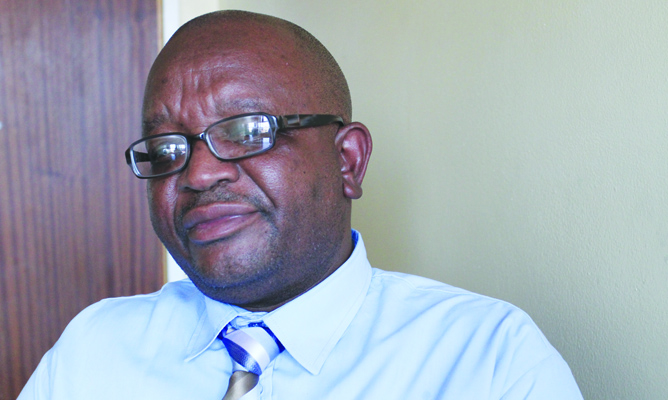
SPEAKING in Beitbridge on June 1 1965, Ian Smith, then Prime Minister of Rhodesia now Zimbabwe, said: “The main argument at the moment for linking the Rhodesian railway system to the Beitbridge was a strategic one, not an economic one.
“As regards the Rutenga-Beitbridge link,” he went on, “we have evaluated the pros and cons and we can move if need be at a moment’s notice.
“But we have not made a decision. At present all the evidence as far as Rhodesia Railways is concerned indicates this would be an uneconomic link and would prejudice the economy of the railways.”
It is evident from the Prime Minister’s statement that both the fiscus and the Rhodesian Railways’ (RR) were in good financial health. Nowadays it is the exact opposite. The government and the National Railways of Zimbabwe (NRZ) cannot “move” in a year or two’s notice, let alone in a “moment’s notice”.
There is no money. Tattered reputations further increase the cost of borrowing, if not rendering it impossible.
Fiscal profligacy, wrong imported policies and lack of government effectiveness have reduced the fiscus into crisis management and the once proud railways into scrap metal.

A discussion of how to rehabilitate the NRZ is never finished unless one talks of Indians, the Chinese or the South Africans. If there is any argument as to whether government policies are achieving the opposite of intended goals such as indigenisation, here is one example.
- Chamisa under fire over US$120K donation
- Mavhunga puts DeMbare into Chibuku quarterfinals
- Pension funds bet on Cabora Bassa oilfields
- Councils defy govt fire tender directive
Keep Reading
There are many more of course such as the Cold Storage Commission (beef), Grain Marketing Board (grain), Zimbabwe Power Company (electricity) and Zimbabwe Iron and Steel Company (steel).
NewsDay (June 11 2015) reported that the NRZ was struggling to get a chief executive officer (CEO).
Out of 40 applicants, the board, if it is to be believed, could find no suitable candidate. During the Rhodesia era, the post was one of the most prestigious in the land. The job came with perquisites fit for royalty. Apart from the tastefully furnished mansion in Bulawayo — then a proud city — there was a VIP rail carriage for the general manager’s trips to Salisbury and back.
The most recent NRZ CEO, the late Retired Air Commodore Mike Karakadzai, perished in a road accident on his way back to Bulawayo from Harare by car.

An assessment of the NRZ and its infrastructure by the World Bank concluded that the parastatal was a death trap and should be grounded. Unsurprisingly, scheduled operations had all been abandoned.
The CEO risked serious embarrassment if not life if he dared travel by train. Yet rail travel, ordinarily, is far safer and more punctual that travel by road.
His Rhodesian predecessors would not be caught dead in a car or Air Rhodesia on a trip to the capital, then Salisbury. So efficient was the RR that arrivals and departures were virtually to the minute on schedule.
And yet the country was under lawful United Nations sanctions and later fighting a vicious civil war.
Why the difference between the RR and the NRZ? Where did the wheels fall off? Could it be that Smith had no factions and less corruption in his Cabinet?
There are many reasons, of course, but another NewsDay story (June 12 2015) may provide one of the most important. There is nearly $6 million that the NRZ cannot account for in its books. That monster called corruption may, therefore, be largely to blame for parastatal woes. Workers at the NRZ, that once was the employer of choice among many a school leaver, have gone unpaid for months.
Corruption may have derailed both the YTL (electricity generation) and the NewZimsteel projects.
It may be derailing the Beitbridge- Chirundu Highway rehabilitation project. It was also all over the Marange diamonds fiasco, as it is in Harare Housing Co-operatives.
President Robert Mugabe is urged to take his own advice and look to the East for a solution. According to The Economist (March 28 2015), “from almost his first day in power, Chinese President Xi Jinping has declared the Communist Party of China (CPC) to be riddled with corruption; life threateningly so indeed”.
It is time Mugabe declares the same of his Zanu PF, now that the country is a de-facto one-party state.
Action then should follow on the lines his Chinese counterpart has embarked on. A massive sustained anti-corruption drive led by the Central Commission for Disciplinary Inspection (CCDI) is underway in China.
The broader political concern behind the Chinese crusade is that “corrupt networks” (within the party) “have become an obstacle to economic reforms needed to sustain growth in the years ahead”.
The CPC describes anti-graft investigators as breaking “factions” that have subverted central authority by blocking its reforms.
The habitats of serious, usually intractable corruption such as boardrooms, executive suites, senior party organs including its politburo, the police and army have not been spared in the investigations.
The equivalent of a police commissioner-general is in prison, while two vice-chairmen of the Military High Command have been detained, one dying before trial.
Dozens of generals and senior party members, including those in the politburo, have met the same fate.
The challenge to Mugabe is how to find a Wang Qishani, Xi’s clean and fearless point man in the CCDI. Unlike Xi, Mugabe seems surrounded, without exception, by “factions” with dirty hands.
Calling in the United Nations, the World Bank, Interpol and Transparency International to assist Zimbabwe Anti-Corruption Commission should be an option; otherwise reforms needed to turn around the economy will be resisted.
Tapiwa Nyandoro can be contacted on [email protected] or [email protected]











